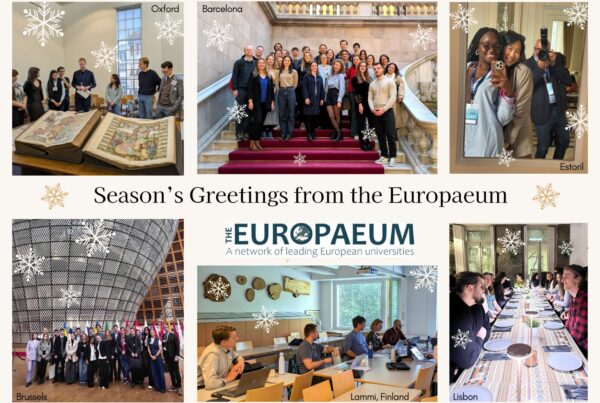
The Europaeum Summer School: AI and the Digital Future
University of Luxembourg | 7 – 9 July 2025
The rapid advance of artificial intelligence has sparked intense debates across technological, ethical, economic, and social dimensions. At their heart are two fundamental questions: how will AI reshape human society and what measures should be taken to ensure its development benefits humanity while minimizing potential risks?
This Europaeum Summer School invites papers and discussions about central debates concerning AI’s impact. On employment, for instance. Proponents argue that AI will create new jobs and increase productivity, pointing to historical technological revolutions that ultimately generated more employment opportunities. Critics counter that AI’s capability to automate both manual and cognitive tasks could lead to widespread displacement of workers across industries, potentially exacerbating economic inequality.
On safety and control, experts disagree about the timeline and likelihood of achieving artificial general intelligence (AGI) and the potential risks it might pose. Some warn about the challenge of aligning advanced AI systems with human values and interests, while others argue that these concerns are premature and divert attention from more immediate challenges with current AI systems.
On privacy and surveillance, the increasing sophistication of AI-powered surveillance technologies, facial recognition systems, and data analysis tools raises alarms about potential misuse by governments and corporations.
On bias and fairness, AI systems have been shown to perpetuate and sometimes amplify existing societal biases in areas like hiring, lending, and criminal justice. This is leading to debates about how to ensure AI systems are developed and deployed fairly, while acknowledging the challenges of defining and implementing fairness in complex social contexts.
This Europaeum Summer School will bring together master’s and doctoral researchers in Humanities, Social Sciences, and other disciplines to explore themes related to this year’s theme from a multidisciplinary perspective.
We invite applications from master’s and doctoral candidates at Europaeum member universities who wish to either just join the discussions or present a 15-minute paper based on their research. We especially welcome proposals for papers addressing the theme in relation to the following topics:
- AI safety and control
- AI bias and fairness
- Privacy and surveillance
- The concentration of AI power amongst large technology companies
- Employment and AI
- environmental impact of AI
- The global governance of AI
Participants will join lively working groups during the event and hear from experts in their field from the University of Luxembourg and beyond. Successful applicants will be provided with free accommodation and reimbursed reasonable travel expenses.
Please see our guidance for applicants and should you decide to apply, please download an application form, complete and return it to applications@europaeum.org. For more information about how to apply and about taking part in our events, please see our core activities’ webpage.
Applications should include the Europaeum application form, a brief CV, a statement of purpose (up to 500 words), and a reference letter from their supervisor or academic advisor. Those who wish to submit a paper should also add a short abstract of the proposed paper (up to 500 words).
Deadline for submission of applications and abstracts: 31 March 2025.
The deadline for applications from students enrolled at Alma Mater Studiorum – Università di Bologna is Monday 7 April 2025.
All submissions should be sent to applications@europaeum.org.



